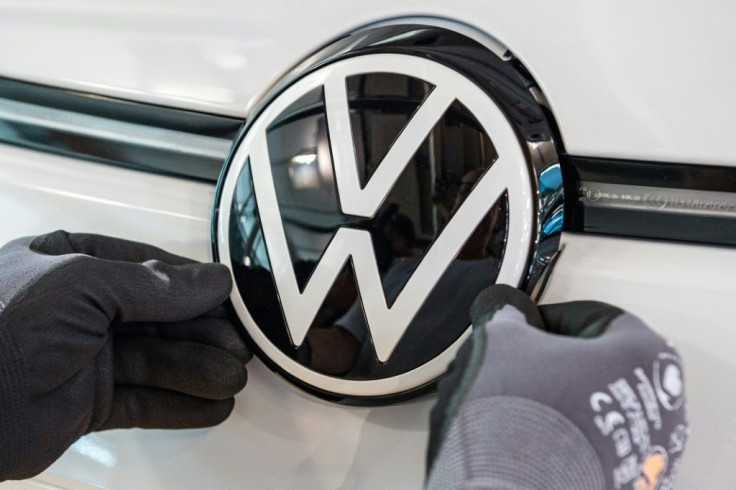Chip Shortage Takes Shine Off Volkswagen's Third Quarter
Volkswagen's underlying profits tumbled in the third quarter as a global chip shortage left the German auto giant unable to meet demand for its vehicles, it said on Thursday.
In the third quarter the company "lost some 600,000 vehicles that could not be delivered to customers compared to the second quarter", chief executive Herbert Diess said in a conference call.
"The global semiconductor bottlenecks particularly impacted on the business performance of the Volkswagen Group in the third quarter," the carmaker said in a statement, forcing it to pause production at some of its plants due to missing components.
The shortage of semiconductors, a key component in both conventional and electric vehicles, had "intensified throughout the industry", Volkswagen complained.
Operating profit before special items, VW's preferred yardstick for underlying earnings, fell 12 percent to 2.8 billion euros ($3.2 billion) in the period from July to September.
By contrast, bottom-line net profit rose by 5.6 percent to 2.9 billion euros.
A year earlier, earnings had been hit by the economic fallout from the coronavirus pandemic.
Vehicle deliveries were down 24 percent in the third quarter, while demand in key market China "could also not be met", VW said.

The industry was "through the worst" of the chip crisis, CEO Diess said, predicting the situation would improve in the fourth quarter, even if "constraints" would continue into 2022.
Building capacity to meet higher demand for the group's vehicles would "take time", Diess said, noting that the number of semiconductors per car was increasing by seven percent a year.
Bottlenecks led to operating losses in the group's mass-market brands, including its VW range, despite "full order books", it said.
The flagship brand was 180 million euros in the red, said chief financial officer Arno Antlitz, and Skoda and Seat also chalked up losses.
The disappointing results showed that Germany's biggest carmaker "must now systematically drive forward the improvement in productivity in the volume sector," Diess said.
"We are determined to maintain our strong position against established and new competitors," said the CEO, who has clashed with unions over the reorganisation of VW's flagship plant in Wolfsburg, Germany.
Following the difficult quarter, VW downgraded its forecast for deliveries in 2021, putting them "in line" with 2020 when business was hurt by the pandemic.
Revenues were, however, still on target to be "considerably higher" than in 2020, thanks to a shift towards sales of premium vehicles.
Continuing on from a strong first half of the year, operating profit jumped to 14.2 billion euros in the first nine nonths from 2.4 billion euros a year earlier.
And Diess said he was "optimistic that 2022 will be a much better year than 2021".
© Copyright AFP 2024. All rights reserved.











